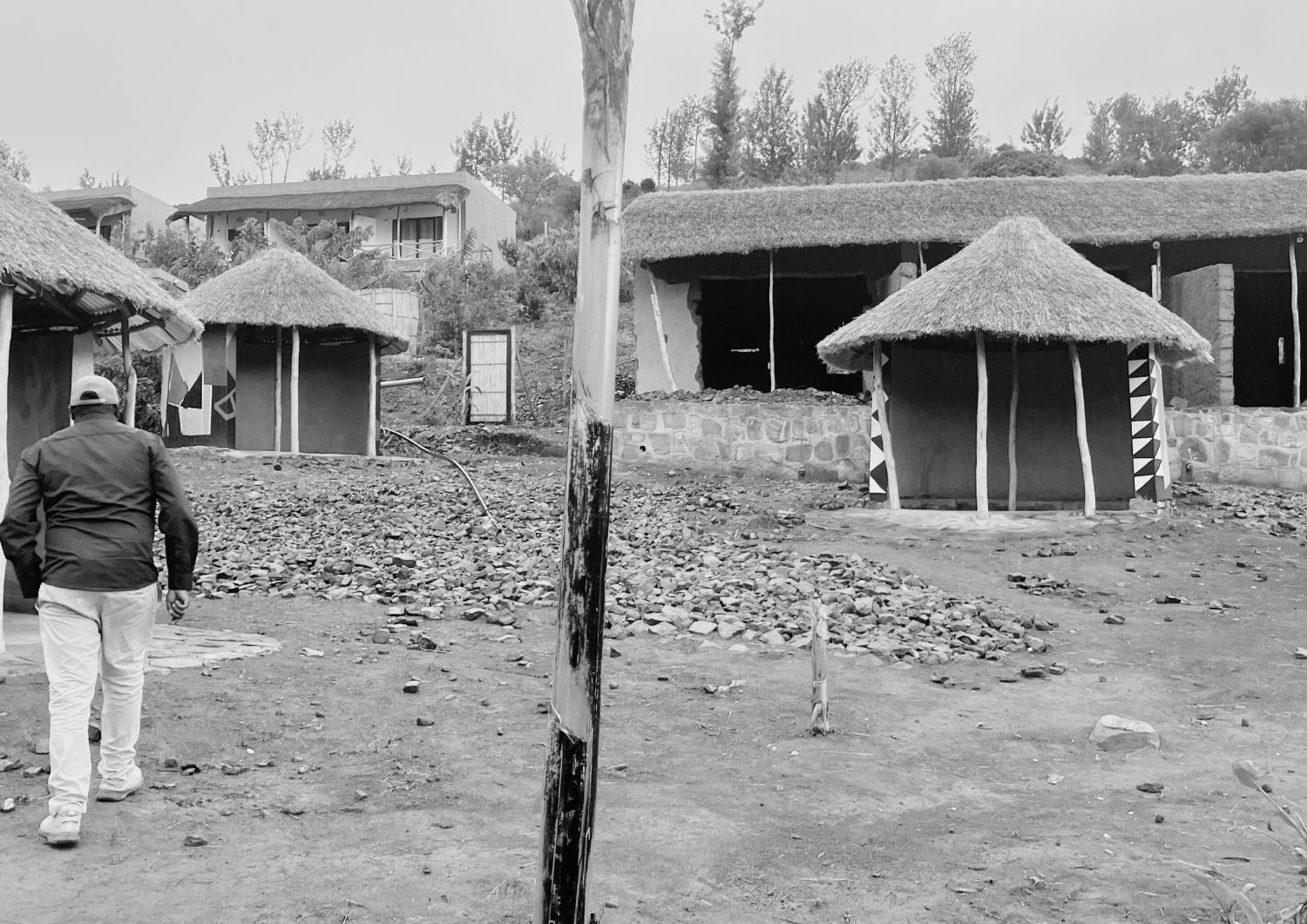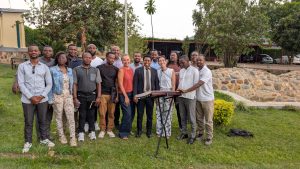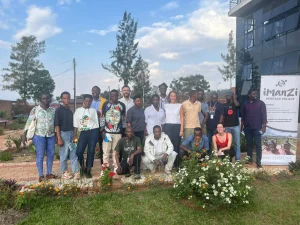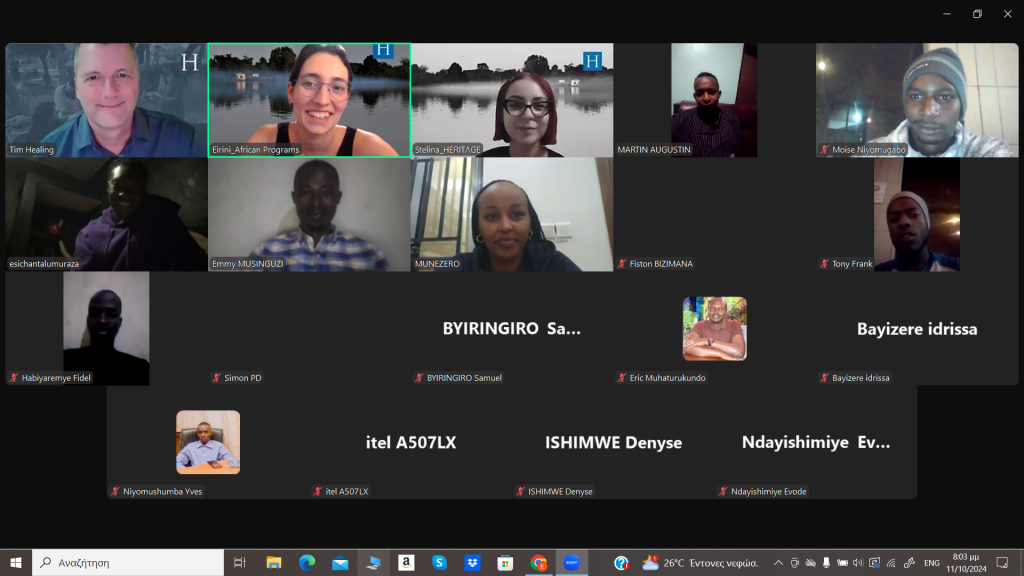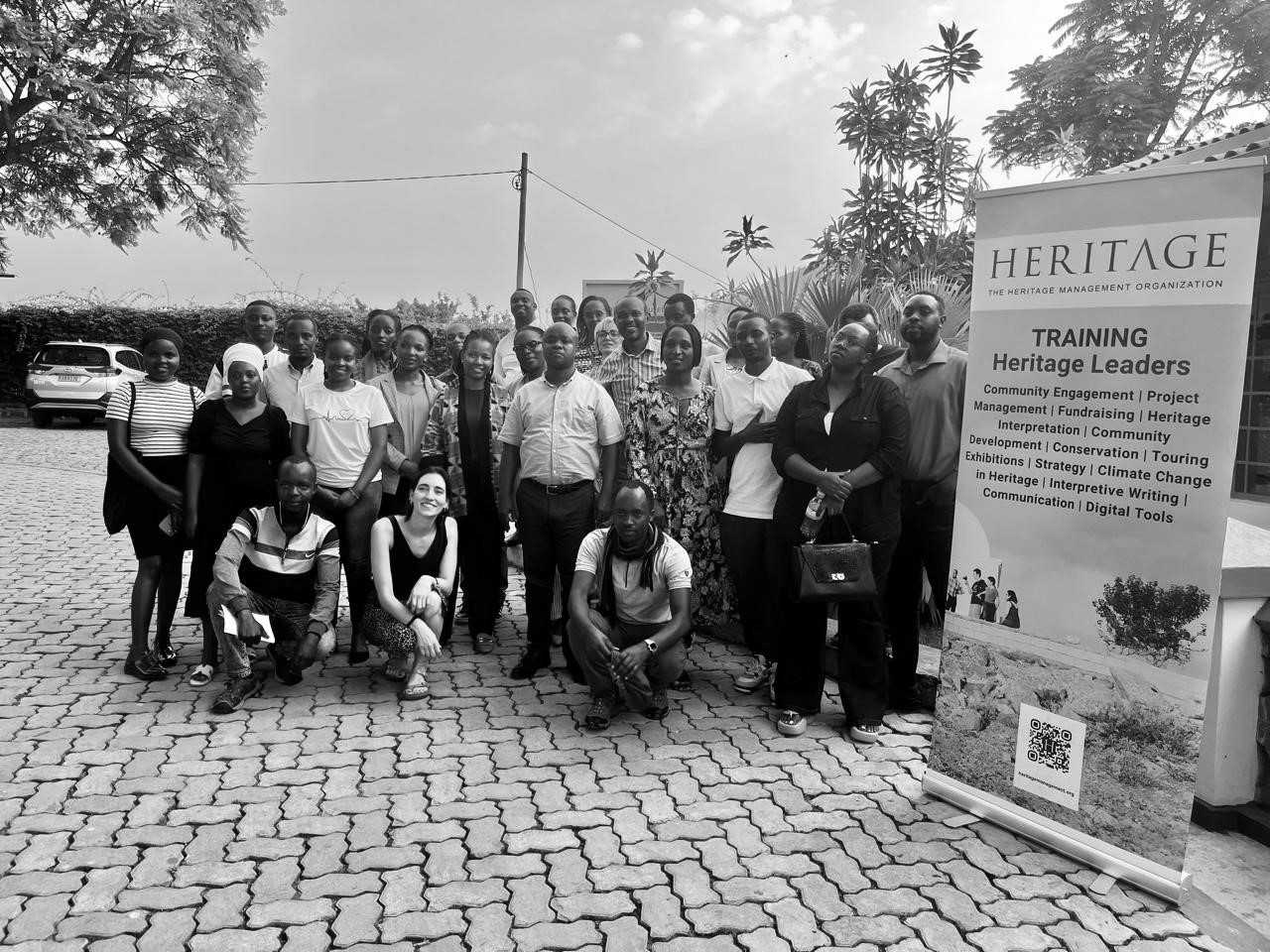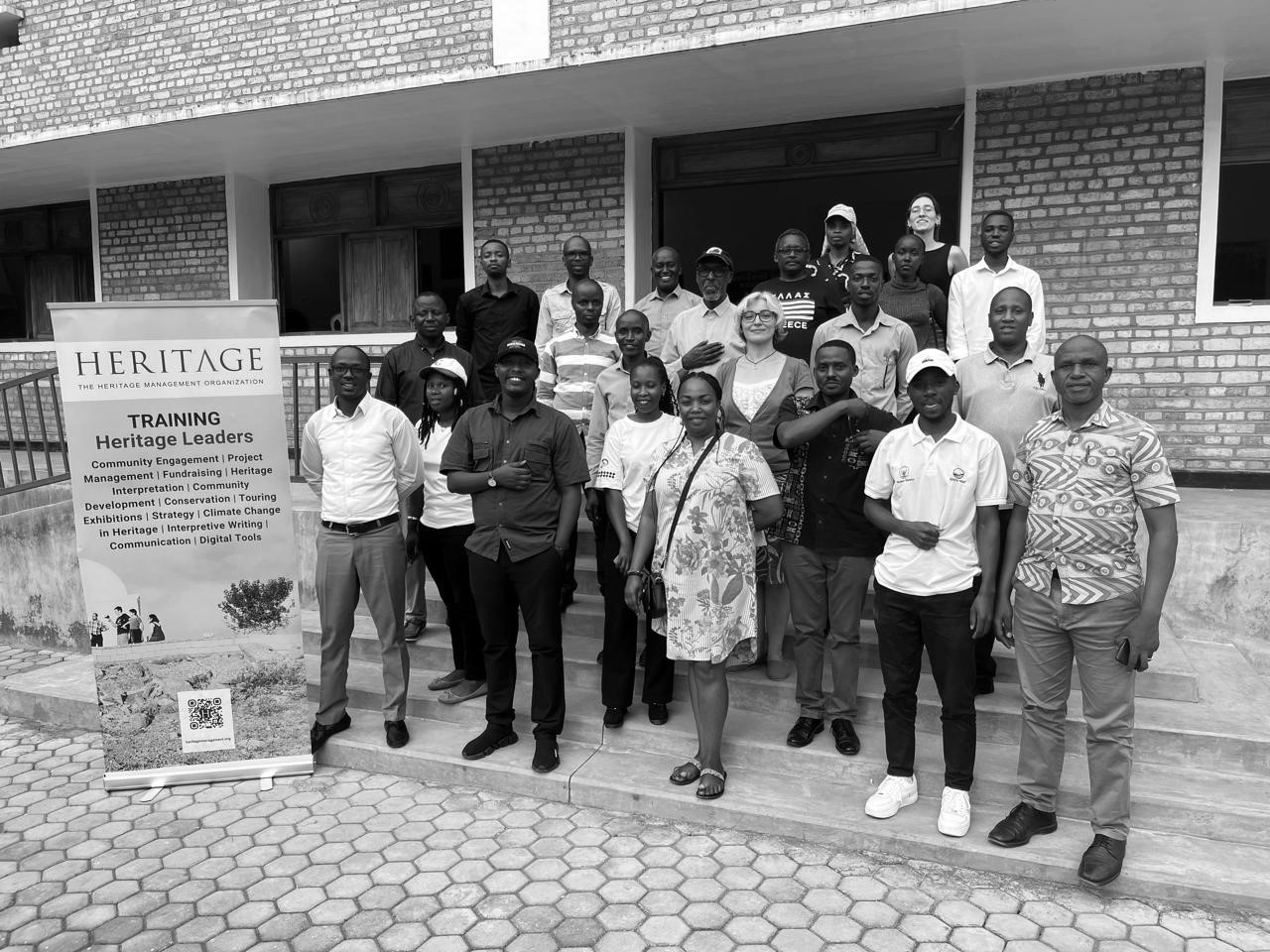Tag Archives: Rwanda
Celebrating Progress: The Kayonza Cultural Heritage Center Nears Completion
By Greg Bakunzi | Co-Founder, Red Rocks Rwanda
We’re thrilled to share exciting updates from the heart of Kayonza, where our vision for a vibrant Cultural Heritage Center is now becoming a reality. What began as a dream to blend culture, conservation, and community has now taken solid form, with construction already 70% complete.
Since its founding, Red Rocks Rwanda (RRR) has stood for one big idea: that cultural tourism can be a force for community development. From our home in Musanze to the open plains of the Eastern Province, our work continues to prove that when people take pride in their heritage, they also protect the land that sustains them.
Building with Heart and Heritage
The new Kayonza Center beautifully combines modern design with traditional inspiration. Think of hybrid thatch and metal roofs echoing ancestral homes, handwoven sisal wall art, and furnishings crafted from reclaimed local wood. Each detail tells a story. Even as builders complete the last phases of interior work, artisans are already using finished spaces for craft workshops and storytelling sessions.
Overcoming Challenges with Innovation
No journey is without obstacles. Along the way, we’ve had to navigate strict zoning and environmental regulations, especially in flood-prone areas. But rather than slow us down, these challenges inspired innovation. Working closely with REMA (Rwanda Environment Management Authority), we designed elevated foundations and permeable pavements that protect both our buildings and the environment.
These collaborative solutions turned challenges into opportunities, and something wonderful happened. Community participation grew stronger than ever. Local leaders, once cautious, are now some of our most enthusiastic advocates.
Expanding Our Reach
What started as one cultural center is now inspiring a network of seven connected sites around Kayonza. Each will focus on preserving pastoral traditions and fostering eco-tourism experiences like guided Inyambo cattle sessions, heritage walks, and community storytelling circles.
The Kayonza site is now the anchor for seven interconnected cultural locations, each celebrating Rwanda’s rich pastoral traditions. Visitors will soon enjoy experiences like:
-
Inyambo cattle demonstrations with traditional herders
-
Interactive craft workshops led by local cooperatives
-
Cultural storytelling evenings around communal fires
-
Agro-tourism and heritage trails connecting culture with conservation
Looking Ahead
The Kayonza Cultural Heritage Center isn’t just a construction project; it’s a growing movement for cultural preservation and sustainable livelihoods. Here’s what’s next:
-
Creating 200 new jobs for youth and women by 2026
-
Launching vocational training in crafts, hospitality, and eco-agriculture
-
Developing digital archives to safeguard Rwanda’s herding and farming heritage
-
Linking Kayonza cultural tours with Akagera safaris, opening new tourism opportunities
A Call to Our Supporters
At 80% completion, we’re closer than ever to our goal, but there’s still more work ahead. We extend heartfelt gratitude to our partners, especially the Mellon Foundation and The Heritage Management Organization, whose belief in our mission keeps us moving forward.
We invite you, friends, donors, and cultural enthusiasts, to be part of this next chapter. Your continued support helps us preserve Rwanda’s living heritage while creating lasting opportunities for the communities that call it home.
From Nyamasheke to Kigali: Empowering Communities Through Cultural Heritage in Rwanda
By Eirini Oikonomidi, Rwanda Projects Manager
During the recent, nearly month-long visit to Rwanda, two successful and highly engaged workshops were conducted under the theme: “Engaging Communities in Cultural Heritage.” The training gathered 37 heritage practitioners who offered valuable insights, exchanged knowledge, and shared on-the-ground experience.
The workshops were led by Lena Stefanou and Aris Anagnostopoulos, whose expertise guided participants through practical strategies for community involvement.
The first workshop took place in the southwestern region of Rwanda, in Nyamasheke. This location was strategically chosen because the area is considerably more remote from Kigali, marking a significant step in expanding our programme’s on-site presence. Partnering with IVOMO, who provided crucial organisation and coordination support, the workshop focused intensely on local needs and specific challenges faced by communities in the Great Lakes region. The week spent in this tropical landscape underscored the importance of reaching remote areas to ensure a broad national impact.
Following the Nyamasheke session, the second workshop was hosted in Kigali, the capital of the country. This session broadened the discussion to encompass a wider range of stakeholders, organisations, and dynamic national applications. Our essential partner, the Rwanda Cultural Heritage Academy (RCHA), as always, provided excellent logistical support, including the necessary room and materials at the Kandt House Museum.
Ultimately, both intensive workshops provided fertile ground for the exchange of knowledge, the development of strategies, and the reinforcement of the role of local communities in the protection, preservation, and utilisation of cultural heritage as a driver for sustainable development.
Field Visits and Strategic Engagement
Following the successful completion of the workshops, the remaining weeks of the mission were dedicated to crucial field visits and high-level stakeholder meetings across Rwanda. As the Country Manager, I embarked on an extensive schedule to personally visit projects on the ground, covering a significant geographical expanse—from the tranquil shores of Lake Kivu in the west, across to the Ngoma District in the east, and down into the Southern Province.
This commitment to comprehensive on-the-ground presence yielded two vital outcomes for both our organisation and our local partners.
First, for me, the visits provided a vastly improved and granular understanding of the actual situation. Observing the projects firsthand allowed me to gain immediate clarity on their evolution, their current state, the specific difficulties local teams face, and their overall trajectory. This practical insight is indispensable for effective strategic planning.
Second, the impact on our local partners and the communities themselves was equally profound. By prioritising this on-site presence, we achieved a deeper connection that served to empower the local teams significantly. Our physical presence demonstrated a genuine interest and commitment, signaling the high value we place on their efforts and achievements. We had the opportunity to meet the dedicated individuals face-to-face, fostering stronger personal and professional relationships that reinforce the communities’ sense of ownership and dedication to the long-term sustainability of their cultural heritage work.
In short, these field visits transformed our theoretical understanding into tangible knowledge, strengthening both our project oversight and the foundational local partnerships necessary for lasting impact in Rwanda.
Project Management Workshop in Rwanda
In October, heritage managers from fifteen institutions across Rwanda joined us online for our Project Management for Heritage Managers Workshop. The course aims to help stakeholders build a better understanding of how to effectively run heritage projects from inception to closure, including evaluation.
HERITΛGE’s Tim Healing started the programme by introducing the basic principles and tools of project management using four case studies from Ghana, South Africa, Niger and Sudan. Participants then focused on specific skills including budget planning, risk management, monitoring and grant writing in the planning and implementation phases of projects. Instructions were then given for the requirements of the final project which will be submitted in groups.
The 22 participants included officials from the Ministry of National Unity and Civic Engagement (MINUBUMWE), the Rwanda Cultural Heritage Academy, the Rwanda Metereology Agency, Kigali Independent University, Rwanda Queen’s Museum, Mfura foundation, the Rwanda Digital Cultural Archive and Rwanda History Archives (Heritage Hub), Amatha Tech/ Rwanda Digital Heritage Platform, RWANDA cultural Library, NZIZA NGO, Golden Class Travel Agency, Art & Travel Ltd, Bwishyura Kivu Boat Cooperative, and Marti’s public secretariat Ltd.
The course was well received and participants showed great interest in how to manage a project and attract potential funders.
The workshop’s focus on real-life case studies also provided actionable insights, which I can implement in ongoing projects.
“Learning how to balance heritage conservation with sustainable development, while involving local communities, was particularly valuable. The workshop’s focus on real-life case studies also provided actionable insights, which I can implement in ongoing projects.” said Aime Ntyonagize, Founder and Director of Amatha Tech/ Rwanda Digital Heritage Platform.
Personally, I liked how very experienced the instructor is in Project Management.
“Personally, I liked the way the instructor is very experienced in Project Management, impressive topics, facilitations and explanations from the trainers etc. To be precise and concise, what I liked most is the project management skills and qualities of a good project manager that I gained from the instructors and facilitators during the course. It was so impressive and fantastic,” said Emmy MUSINGUZI, Genocide Memorials & Site management Officer / Bisesero memorial site
Tim Healing is our interim director of African Grants, and capacity development officer helping small heritage organizations in Africa develop an application and ensure they manage their grant efficiently. Tim has over thirty years’ experience working as a project manager and has a professional background in project management, community and NGO development.
For more information about HERITΛGE’s workshops, go to our open courses page, or follow us on Facebook, Twitter / X, LinkedIn or Instagram.
Heritage Interpretation In Rwanda
49 heritage professionals from Rwanda took part in two recent Introduction to Heritage Interpretation Workshops, led by HERITΛGE’s Valia Stergioti. The participants included officials from educational institutions, heritage sites, tourist businesses, local communities and NGOs.
During the workshop, which was led in person by HERITΛGE’s Valya Stergioti, they were introduced to the skills that allow heritage managers to transform mere phenomena into captivating experiences. They learned how to evoke a deep resonance within visitors at heritage sites of natural and/or cultural significance, guiding them towards profound insights and nurturing an appreciation for all aspects of heritage. Additionally, participants developed the ability to provide and receive constructive feedback to and from their peers.
The first of the two workshops was delivered in cooperation with the Rwanda Cultural Heritage Academy to 26 heritage and tourism professionals and took place on 24-26 July at the Rwanda Heritage Hub and the Kandt House Museum in Kigali.
“I learned to connect our participants to the site, which will help to increase our visitors satisfaction” said Esther Kakuze, Managing Director of ImuHira Ecotourism Rwanda who took part in the workshops.
“My project and institution will benefit through my professional practice,paying attention to all details related to heritage Management and community engagement,” said Wilhelm Mugiramahoro, Operations Officer for the Rwanda Cultural Heritage Academy.
The second workshop was delivered in cooperation with Nyanza District to 23 heritage and tourism professionals in the Nyanza District’s Visitor Centre.
“I have gained new skills as the heritage interpretation workshop was a new subject to me. I will use them so my visitors can enjoy our site and be our ambassadors, ” siad Sandrine Uwambayinkindi from the Girampuhwe Visitor Centre.
Both workshops are part of our HerMaP Africa program which is realised with the generous support of the Mellon Foundation’s Humanities in Place program.

